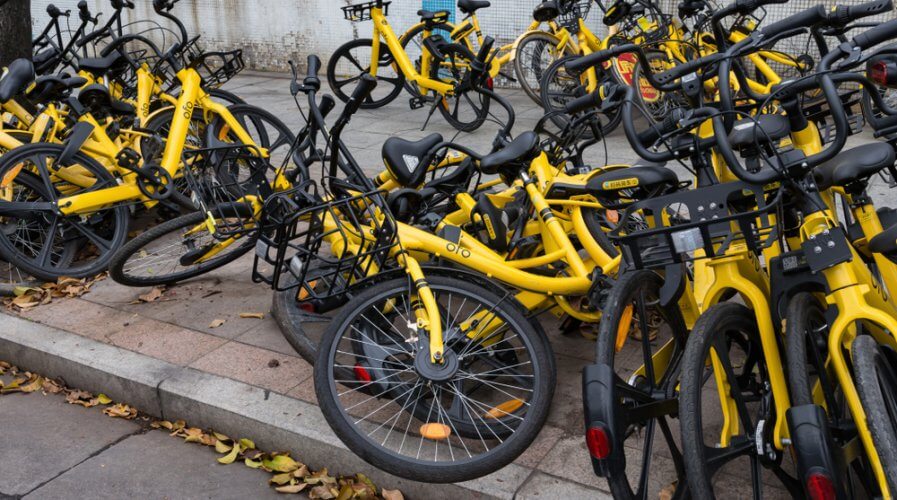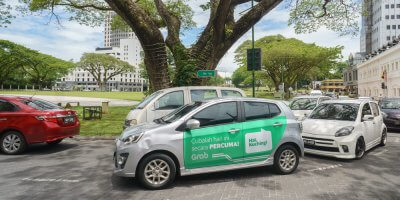
Bike sharing operators are pulling out of international markets as they burn through cash without a clear strategy in mind. Sourec: Shutterstock
Are bike sharing operators running out of roads?
BIKE sharing startups have been aggressively expanding into international markets recently.
That’s a stark contrast to this year, where numerous bike-sharing operators, including Ofo and Mobike, have been pulling out of the markets they were so overzealous about.
Growing too quickly, coupled with the lack of a clear strategy, has led many companies that are underprepared to exit the markets soon after their entry.
One of the companies that have been making regular headlines is Ofo. In the past year, Ofo has been reported to be exiting Germany, Australia, Israel, Austria, India, Malaysia, the Czech Republic, as well as scaling back operations in the US and the UK, all the while facing difficulties in Singapore.
Other aren’t having it easy either. Mobike, too, has announced plans to scale back in the US. Hong Kong’s GoBee also pulled out of Europe entirely before going bust altogether. New regulations in Singapore too have forced out at least three bike sharing companies – Gbikes, oBike, and ShareBikeSg.
The biggest issue of dockless bike sharing, which has been brought up on numerous occasions in the media and otherwise, is theft and vandalism. Commonly, bike sharing operators can see around 50-60 percent of their fleet destroyed, as reported by Tech in Asia.
Adding insult to injury, the operators are responsible for fines if bikes are found to be misplaced, poorly parked, or vandalized. On top of the costs incurred to replace bikes that have been trashed, operating costs can quickly turn into a hefty sum for the company.
Relating back to the issue of poorly parked bikes, not all cities have broad streets or sidewalks either. A cluster of unkempt bikes fast becomes an obstacle, instead of providing the needed convenience.
Beyond that, is the difference in urban environments. Some cities, especially in the western world, tend to be less densely populated. This means just locating a bike takes time, as they are likely to be more spread out.
This issue gets exacerbated when local regulations come into play. In some cities, the number of bikes per operator comes with a cap, compounding on the issues of difficult to locate bikes.
In addition to bike-sharing, scooter-sharing startups too have joined in to take a slice of the sharing economy in the mobility space. Given its small yet powerful drive, it’s something a lot of riders prefer.
Bringing all that together, bike-sharing companies have been over-ambitious in growing and expanding, without a well thought out strategy. This contributed to them burning more cash than is viable.
The current business model for bike-sharing runs a high operating cost. In fact, the South China Morning Post reported that the market has been slowing down, with neither Mobike or ofo generating any profit at all.
Not to mention, in a relatively saturated market, companies are pouring in money to ensure they not only stay afloat but also best their competitors.
With all these combined factors, it is only wise for the bike-sharing industry as a whole to figure out a more sustainable business strategy, tailored to each market, before even attempting to scale out.
READ MORE
- Safer Automation: How Sophic and Firmus Succeeded in Malaysia with MDEC’s Support
- Privilege granted, not gained: Intelligent authorization for enhanced infrastructure productivity
- Low-Code produces the Proof-of-Possibilities
- New Wearables Enable Staff to Work Faster and Safer
- Experts weigh in on Oracle’s departure from adland




